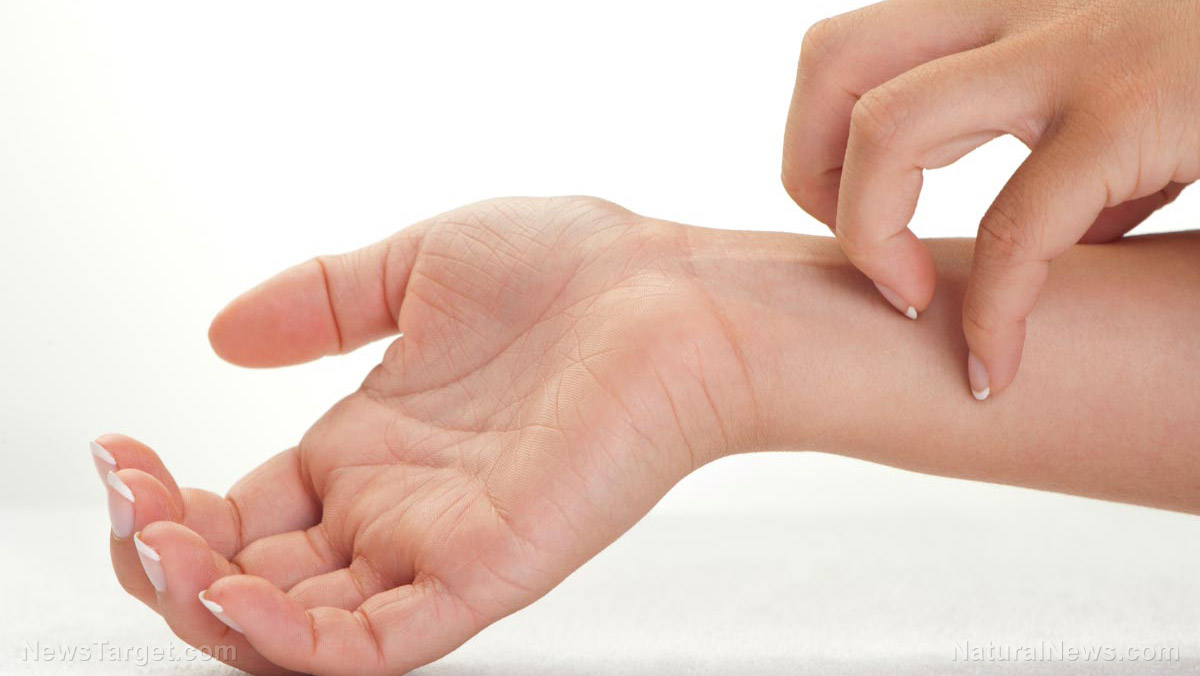
(Article republished from YourNews.com)
An in-depth analysis by The Epoch Times of adverse event reporting systems from the United States, United Kingdom, South Africa, and peer-reviewed scientific literature has identified a list of significant adverse events reported following COVID-19 vaccination. These events range from widely recognized complications such as blood clots and myocarditis to less discussed but documented effects in research studies. The ranking of these adverse events is based on their reported severity.
The U.S. Vaccine Adverse Event Reporting System (VAERS), a passive system that relies on individuals to report their experiences, along with the United Kingdom’s Yellow Card Reporting system and South Africa’s VAERS database, were pivotal sources for this review. Though VAERS does not establish causality, it is instrumental in identifying unusual patterns that may signal potential vaccine safety concerns, as explained on its official website.
Among the adverse reactions, some have been previously detailed by The Epoch Times, with further information available through linked past articles.
Healthcare professionals treating persistent adverse reactions from COVID-19 vaccines attribute these issues primarily to the COVID-19 spike protein, inherent to both the virus itself and induced by mRNA vaccines. These vaccines prompt the body to produce spike proteins, which are then targeted by the immune system to create immunity. However, the spike protein is also known for its inflammatory and toxic properties, leading to a range of symptoms in some vaccinated individuals.
Experts have identified six potential mechanisms through which the spike protein could inflict harm:
- Immune dysregulation
- Blood clotting and vascular damage
- Mitochondrial dysfunction
- Mast cell activation syndrome
- Autoimmune reactions
- Tissue damage due to persistent spike proteins
Additionally, the role of lipid nanoparticles in mRNA vaccines has come under scrutiny. Research indicates that these particles can trigger inflammatory responses and affect immune system activity, contributing to reported adverse events.
COVID-19 Vaccine General Adverse Events
The most common COVID-19 vaccine adverse events are those that affect the body generally.
- Chest pain may be a sign of myocarditis, but it can also be due to inflamed rib joints, lung inflammation, or neuropathy in the chest—all of which will be explained later in the article.
- Fatigue after vaccination is mostly transient. However, some people may experience persistent and debilitating fatigue, where even taking showers or doing a basic chore leaves them exhausted for the remainder of the day. Around 8 percent to 80 percent of vaccinated individuals report fatigue as a side effect, with most cases being mild. However, for some people, fatigue may never seem to get better. A study that followed 498 vaccinated physicians and dentists showed that around 6 percent reported long-term fatigue post-vaccination. One possible reason for the fatigue is mitochondrial dysfunction. Mitochondria are the body’s cellular powerhouse, present in most cells and responsible for producing energy for the body.
- Fever and chills may manifest due to the body’s immune system fighting off the vaccine and are usually transient.
- Swelling and pain at the injection site is usually transient. Pain can also happen throughout the body.
- Armpit pain may indicate that the body’s immunity is fighting off infections. The armpit area houses a cluster of lymph nodes that contain immune cells. These lymph nodes can become swollen after infection and vaccinations, leading to pain in the underarm area.
Nervous System Disorders
Nervous system disorders are some of the most common adverse events reported. In the Pfizer trials, these disorders were the third most common, coming after general and muscle-related adverse events, while they were the second most common in the Moderna trials.
Animal and model studies have shown that spike proteins can cross the blood-brain barrier. A 2023 preprint study found spike proteins in the brain tissues of deceased COVID-19 patients. The histological brain examinations of the late German pathologist Dr. Arne Burkhardt showed that spike proteins damage blood vessels in the brain.
Spike proteins share structural similarities with proteins present in the human nervous system, and when our bodies attack the spike protein, collateral damage to the nerves may also occur. mRNA vaccines also contain a prion region and have been shown to accelerate the formation of misfolded proteins, which are potentially linked to Alzheimer’s and Parkinson’s disease.
Guillain-Barré Syndrome
The U.S. Centers for Disease Control and Prevention (CDC) recognizes Guillain-Barré syndrome (GBS) as a safety signal of the Johnson & Johnson (J&J) vaccine. A study published in Scientific Reports found that COVID-19 vaccine recipients have a 42 percent increased incidence of developing GBS.
GBS is an autoimmune disease. COVID-19 spike proteins share similarities with over 28 human proteins, including glial tissues and brain growth factors. Therefore, if the body attacks the spike protein, some of the antibodies formed may also attack the brain and the nervous system, potentially leading to neurological disorders.
Dementia
While COVID-19 vaccination has not been directly linked to dementia, it has been linked with cognitive deficits, memory loss, and delirium, all of which are symptoms of dementia.
A study funded by the National Institute on Aging reported delirium the day after vaccination in older people in a nursing home, but it was resolved within two weeks.
The Italian NEURO-COVAX population-based study evaluating over 19,000 people found that almost 2 percent reported cognitive fog after vaccination.
Seizures
In October 2022, U.S. Food and Drug Administration (FDA) researchers detected seizures as a safety signal for children aged 5 and under who received the mRNA vaccines. A Japanese study that followed 332 people with epilepsy observed seizure worsening following vaccination in 5.7 percent of those who received their first and second COVID-19 vaccines.
Data from the Global Vaccine Data Network (GVDN) showed that the first and second doses of the Moderna vaccine were associated with an increased risk of febrile seizures, convulsions in children caused by a fever. The first dose of the Moderna vaccine and fourth dose of the Pfizer vaccine were associated with an increased risk of generalized seizures.
Additionally, the first dose of the Moderna vaccine was also associated with acute disseminated encephalomyelitis, a type of autoimmune condition that may present as seizure attacks.
Gait Disturbance
One review linked four cases of gait disturbance to the COVID-19 vaccine. Another paper published in Cureus reported four neurological case studies, with one patient developing gait disturbance from Guillain-Barré syndrome and one from meningitis-retention syndrome.
Researchers at the University of Florida followed several Parkinson’s disease patients who experienced worsening Parkinsonian symptoms after vaccination, with gait disturbance being the most common.
Bell’s Palsy
Bell’s palsy manifests as facial muscle weakness or paralysis and has been recognized as a COVID-19 vaccine safety signal by researchers at the FDA. An FDA preprint found that older people who received the Pfizer booster had a higher rate of developing Bell’s palsy.
Data from the GVDN similarly found that the first doses of the Moderna and Pfizer vaccines were associated with an increased risk of Bell’s palsy.
Tremors
Sensory changes such as pins and needles, temperature intolerance, pain, and lack of sensation are all indicators of neuropathy. The Epoch Times has reported on neuropathy that occurs after vaccination.
Neuropathy is when sensory neurons in the periphery are damaged. If the neuron is meant to detect heat, then the damage may cause a burning sensation or reduced ability to detect temperature. Damage to the neurons meant to detect touch may result in a pins-and-needles feeling, diminished sensation, or even a feeling of electric shock.
Headaches and Dizziness
Though many people have temporary headaches or dizziness after vaccination, some may also experience persistent and painful migraines that affect daily living. These headaches may be the result of neuroinflammation induced by the spike protein.
Fainting, or a temporary loss of consciousness, can occur due to decreased blood flow to the brain.
Cardiac Disorders
Spike proteins have been shown to damage the endothelium lining of the heart, causing inflammation and fusing the heart muscle cells, as demonstrated by research conducted at the Mayo Clinic. Both processes can harm the heart muscles’ functioning, leading to various conditions.
A German study published in the British Journal of Pharmacology showed that heart cells exposed to the Moderna and Pfizer vaccines produce spike protein and exhibit different abnormalities.
Cardiac Arrest
There has only been a few studies linking cardiac arrest with COVID-19 vaccination. Analysis of the World Health Organization’s (WHO) adverse events database showed that the COVID-19 vaccines were associated with an increased risk of cardiac arrest in those older than 75 years of age.
Only one peer-reviewed study has linked cardiac arrest with the COVID-19 mRNA vaccine, in which a 59-year-old male with no significant past medical history received a third dose of the mRNA shot and experienced cardiac arrest within seven hours.
Cardiomyopathy
Cardiomyopathy is a condition affecting the heart muscle. The heart cavities may become enlarged, with the muscles becoming thicker or stiffer, causing a weakened heart and even leading to heart failure or cardiac arrest.
A 2022 global review on stress cardiomyopathy cases reported post-vaccination found that, on average, most symptoms occurred around three days after vaccination. The authors concluded that the problem is rare but can be life-threatening. Medical journals documented several cases of cardiomyopathy, including one healthy 63-year-old woman with no cardiovascular risk factors who was admitted to the emergency room one day after her first dose of the Moderna vaccine.
Heart Attack
Spike protein damages blood vessels and is also prone to forming blood clots, which can block coronary arteries, leading to heart attacks. The WHO’s adverse events database showed that the COVID-19 vaccines are associated with an elevated risk of heart attacks in those older than 75.
Several case studies have reported heart attacks within 24 hours of vaccination, including one Japanese case study and one Harvard University study.
Myocarditis and Pericarditis
Reports of myocarditis as a safety signal have been extensively reported in The Epoch Times’ premium reports. Recently, FDA researchers have also detected myocarditis as a safety signal for the latest COVID-19 monovalent vaccines.
It can occur as a result of spike protein damaging the heart muscles. A paper published in the Journal of the American College of Cardiology found that the Moderna vaccine was associated with a higher rate of myocarditis than the Pfizer vaccine for young men.
Like myocarditis, pericarditis is also a type of heart inflammation, but the outside heart lining is affected rather than the heart muscles. Pericarditis can lead to pericardial effusion, which occurs when fluid builds up around the heart. The Epoch Times has reported on a professional mountain biker who was diagnosed with pericarditis after vaccination and was hospitalized.
Postural Orthostatic Tachycardia Syndrome (POTS)
Cases of POTS have increased in the wake of the COVID-19 pandemic. POTS is a condition that causes rapid heart rate when a person changes positions from lying down to standing up, indicating dysfunction between the nervous and cardiovascular systems.
Dr. Tae Chung, director of the Johns Hopkins POTS program, noticed some unusual cases among medical students or physicians who were vaccinated but not infected with COVID-19. Later, a large cohort study identified a possible link between the COVID-19 vaccine and the disease.
In July 2023, The Epoch Times spoke to two women in their 20s who were diagnosed with POTS after COVID-19 vaccination.
Arrhythmia
Arrhythmias occur when there is an electrical malfunctioning of the heart, with heartbeats becoming too rapid, slow, or irregular.
A study published in Vaccine: X found an increased risk for arrhythmias without myocarditis within 14 days of a second dose of mRNA vaccine in adults. The Moderna vaccine presented a greater risk than the Pfizer. A systematic review concluded that “the incidence rate … of cardiac arrhythmia post-COVID-19 vaccination is rare and ranges between 1 and 76 per 10,000.” Another 2023 review said the problem is “not uncommon.”
Atrial fibrillation, the most common type of arrhythmia, has also been reported in the literature.
Hypertension
As the vaccination campaign continues, evidence of possible blood pressure alteration has accumulated. The mechanism is unknown; it may be linked to the reduction of angiotensin-converting enzyme-2 (ACE-2) receptors in the body, as spike proteins bind to ACE-2 receptors to enter cells.
A meta-analysis study published in the Journal of Cardiovascular Development and Disease examining data on 357,387 vaccinated individuals found that around 3.2 percent reported an increase in blood pressure in post-vaccination reports filed 15 minutes to days after vaccination.
Heart Palpitations
Heart palpitation is a sign of underlying heart disease, though it is typically transient and non-severe.
Blood Disorders
A major side effect reported following vaccination is blood clots. Spike proteins are particularly prone to clotting. While most blood clots require the presence of thrombin and platelets, spike proteins can form clots even in the absence of these proteins.
Early in the vaccine rollout, the now discontinued J&J vaccine was shown to cause blood clotting despite low platelets in the blood. The mRNA vaccines have similar problems.
Spike proteins also change the structure of the proteins inside the clot, resulting in amyloid-like blood clots that are much larger and harder to break down. Multiple studies have shown that spike proteins directly bind to clotting factors in the blood, promoting both large and microclot formations.
Depending on where the blood clots form, patients may develop various pathologies related to the clotting.
Stroke
In early 2023, the FDA and CDC released a joint statement declaring stroke as a new safety signal in older people who took Pfizer bivalent boosters. However, months later, they reversed the statement.
A self-controlled case series that followed 32 million British people found that COVID-19 vaccination was associated with a 38 percent increased risk of hemorrhagic stroke, or brain bleeds.
A study published in the Journal of Stroke and Cerebrovascular Disease followed a woman in her 80s who first had a stroke three days after she took her first COVID-19 mRNA vaccine. She then had a second stroke three days after her second dose.
A statewide study that followed 5 million people living in Georgia found that those who contracted COVID-19 within 21 days of vaccination were at the highest risk of stroke.
Signs and symptoms of stroke include the inability to understand language (aphasia) and difficulty speaking (dysarthria), both of which have been reported following COVID-19 vaccination.
Pulmonary Embolism
Pulmonary embolism occurs when blood clots form inside the lungs. This can impair oxygen exchange and excretion of carbon dioxide within the lungs and is potentially fatal.
Data from the GVDN showed that the recipients of the first mRNA vaccine doses or the AstraZeneca vaccine were all associated with an increased risk of pulmonary embolism between 20 and 33 percent.
A case study published by clinicians at Wake Forest Baptist Medical Center discussed two cases of pulmonary embolism after patients had been administered the Pfizer vaccine, both of which affected those who were otherwise not at higher risk for blood clots.
A Korean study published in Vaccines reported a case of pulmonary embolism that occurred seven days after the patient took his first mRNA vaccine shot.
Deep Vein Thrombosis
Blood clotting in the veins in the limbs is also potentially fatal if the clot stops blood from flowing back to the lungs. While large studies have not found an increased risk of deep vein thrombosis with COVID-19 vaccination, several case studies have linked patients’ deep vein thrombosis to vaccination. For example, a 75-year-old male developed swelling in his left leg 10 days after his second dose of the Pfizer vaccine.
Vasculitis
Vasculitis is damage and inflammation to the blood vessels, which could further encourage blood clotting.
The more common vasculitis diseases affect the smaller blood vessels, causing red spots and lumps on the skin and possible organ damage.
A paper published in the Journal of Rheumatology associated the COVID-19 vaccine with an uptick in IgA vasculitis, a type of vasculitis.
Another mini-review published in Frontiers in Medicine also stated that cases of vasculitis of the skin “have been more frequently reported” after COVID-19 vaccinations than after infection.
Raynaud’s Phenomenon
Raynaud’s phenomenon is a condition in which some areas, usually the fingers, feel numb and cool due to restricted blood supply to these areas.
A study followed 19 patients who developed Raynaud’s phenomenon after COVID-19 vaccinations. Around 80 percent of the participants had no preexisting Raynaud’s phenomenon. The authors concluded that while their study does not infer a causal relationship between vaccination and the occurrence of Raynaud’s phenomenon, they found the temporal relationship “unsettling.”
Cyanosis, a condition where a person’s fingers and lips turn blue due to poor circulation, can also occur due to Raynaud’s phenomenon.
Skin Disorders
A plethora of skin symptoms have been reported after COVID-19 vaccination.
Skin reactions can manifest as signs of an allergic or immune response to the vaccine. While the reactions are generally transient, some people may suffer from the condition for a long time.
A large study published in the Journal of the American Academy of Dermatology identified several common adverse reactions: rashes, itchy, red skin, and hives.
“Some rashes may appear a day or two after vaccination, and some have a delayed onset, as long as 7–14 days after vaccination. Most of these rashes resolve on their own with time,” the lead author Dr. Esther Freeman, director of Global Health Dermatology at Massachusetts General Hospital, said in a press release.
Vitiligo
Vitiligo is an autoimmune condition where pigment is lost from areas of the skin, causing whitish patches. A systematic review of vitiligo cases linked to COVID-19 vaccines published in September 2023 identified 15 new or worsened cases.
Livedo Reticularis
The skin condition is thought to be caused by inflamed blood vessels and often presents with blotchy, reddish-blue to purple, net-like patterns on the skin.
A case study published in the Journal of Rheumatology followed an 80-year-old woman who developed livedo reticularis on her left upper arm and surrounding areas a day after her third vaccination dose. Another case study identified a case occurring in the knee cap, also after a third COVID-19 vaccination. The patches, however, resolve when the skin is warmed.
Hair Loss
Hair loss can be due to hormonal changes, stress, and autoimmune conditions.
A study published in Skin Appendage Disorders reported five cases of hair loss after the people received their first dose of the COVID-19 vaccine. While the condition mostly resolved, one patient suffered progressive worsening alopecia with each subsequent vaccination.
A study published in Vaccines discussed several cases that involved a female patient who had no history of COVID-19. Three days after her first AstraZeneca booster, she reported to a clinic complaining of excessive hair loss.
Sun Allergy
A sun allergy describes a condition where a person’s skin becomes itchy with rash formations a few hours after exposure to the sun. It is often caused by excessive histamine release and is usually linked to mast cell activation syndrome, which will be introduced in the “Immune and Autoimmune Disorders” section.
Psoriasis
In psoriasis patients, skin cells multiply too quickly due to immune dysregulation, causing patches of skin to become scaly and inflamed.
A review study conducted by Taiwan researchers found 314 cases of new-onset psoriasis or flares. “First, second, and third vaccine doses were associated with psoriasis incidents, with the second dose most frequently associated with psoriasis flares,” the authors wrote.
Eczema
Eczema is a condition caused by inflammation, leading to dry and itchy skin.
A paper published in the British Journal of Dermatology followed over 1,900 people with a history of eczema or psoriasis. Ninety percent experienced at least one flare-up following vaccination. Another study linked the cases of 22 patients in the United States who reported either itchy skin or eczema to prior COVID-19 vaccination.
Excessive Sweating
Excessive sweating has been identified as a side effect by the United Nations Children’s Fund.
Erythema Multiforme
A skin disorder characterized by bull’s-eye-shaped lesions, erythema multiforme is often thought to be caused by an allergic reaction.
A review investigated 31 studies and identified 90 patients with erythema multiforme “as a side effect of COVID-19 vaccination.”
Pityriasis Rosea
Pityriasis rosea is a rash that often begins as an oval spot on the face, chest, abdomen, or back. A review published in Immunity, Inflammation and Disease identified 111 people who developed pityriasis rosea after COVID-19 vaccination. Most had symptoms in their trunk area, and the average time of onset was nine days. Recovery, on average, took a month and a half.
Psychiatric Disorders
The Epoch Times’ premium reports have extensively discussed various psychiatric disorders reported in the literature and by clinicians.
The problem can be as mild as sleeplessness or as severe as psychosis.
Studies have also found the reverse, stating that COVID-19 vaccinations improved mental health conditions.
Hallucinations
This phenomenon has developed in some of those vaccinated, often reported in the literature as psychosis.
An Indian review documented 11 cases of psychiatric adverse events from COVID-19 vaccinations, of which five patients also developed hallucinations. One such case manifested on the same day as the vaccination. Another case study described a 45-year-old woman with no history or family history of mental disorders who developed psychosis a month after COVID-19 vaccination. The woman abruptly quit her job of 18 years and would only get dressed in the dark due to her delusions.
“Rare occurrences of psychosis” after the Moderna COVID-19 vaccine are possible, the authors wrote.
Anxiety and Depression
In a previous premium report, psychiatrist Dr. Amanda McDonald told The Epoch Times that she observed patients’ anxiety and depression suddenly became resistant to psychiatric medication after their vaccination or COVID-19 infection.
A study presented two patients whose bipolar disorder was previously stable for years on the same medications. Both experienced worsened depression and mania after vaccination.
A 2021 report by the CDC found that four out of five vaccine-administration sites had to temporarily suspend vaccination due to anxiety-related symptoms, such as fainting soon after patients were given a dose of the J&J vaccine.
Panic Attack
Multiple case studies documented the sudden onset of panic attacks following vaccination.
One case involved a 26-year-old woman who first developed suicidal ideation from panic attacks after a COVID-19 infection. After she recovered, she took a second dose of the Pfizer mRNA vaccine, and within four hours, she started to experience panic attack symptoms again. A 48-year-old man developed a fear of death and an impending sense of doom after taking a second dose of the Pfizer vaccine.
Insomnia
Though few studies have singled insomnia out as an adverse event following vaccination, sleep disturbance is often reported in association with other conditions. A Turkish study that tracked 787 vaccinated health care workers found around 11 percent reported at least one sleep disturbance. The Italian NEURO-COVAX study that evaluated over 19,000 people found that 1.6 percent reported insomnia, with the Moderna vaccine most linked to insomnia as an adverse event.
Another study that tracked more than 69,000 individuals’ sleep, cardiovascular, and respiratory changes through their biometric device found that more of their sleeping time was spent in light sleep rather than restorative sleep for the first few days after vaccination.
Infections
COVID-19 vaccinations are supposed to improve immunity against the virus. However, a growing number of studies have found that repeated COVID-19 vaccination potentially weakens the immune system, putting the body at risk of infection from COVID-19 and other viruses.
Pneumonia
Several case studies have recorded pneumonia or lung infection associated with COVID-19 vaccines, though there have been no large reviews. A case study published in Bronchoneumolgia reported a patient who developed mild fever, shortness of breath, oppressive chest pain, and other symptoms within eight to 10 hours of taking a second vaccine dose.
Another study published in the International Journal of Infectious Diseases reported the appearance of pneumonia symptoms in an 83-year-old man within a day of getting the COVID-19 vaccine.
COVID-19
The COVID-19 disease itself is among the top 10 most common adverse reactions reported to VAERS. Studies from Cleveland Clinic have shown that repeat COVID-19 vaccinations are associated with increased risks of COVID-19 infections.
Research led by professor Vladimir Uversky from the University of Florida predicted that repeat vaccination of the non-live COVID-19 vaccines could cause the body to become more tolerant of potential COVID-19 infections rather than boosting its own defense.
Viral Reactivation and Infections
Herpes zosters, chicken pox, and Epstein-Barr viruses are commonly reported. Opportunistic bacterial and fungal infections may also manifest due to a period of immunodeficiency.
Eyes, Ears, Nose, and Mouth Issues
The immune response following COVID-19 vaccination may lead to temporary lesions and inflammation affecting the eyes, ears, nose, and mouth.
Tinnitus and Hearing Loss
Tinnitus has been regularly reported both in VAERS and the Yellow Card reporting system. The exact mechanism for tinnitus is unknown, though some studies suggest neurological damage.
Perhaps the most famous case of tinnitus was reported by Dr. Gregory Poland, director of the Mayo Clinic’s Vaccine Research Group, who developed severe tinnitus after he took his second dose of a Moderna shot in 2021.
While the CDC has said it has not found evidence of a link between COVID-19 vaccination and tinnitus, the organization’s internal documents show tinnitus as a safety signal in the VAERS system. Many studies have also made the connection.
Sudden sensorineural hearing loss, or hearing loss 30 decibels or greater, is rarely but still reported after vaccinations. A 68-year-old female developed a ringing in her ears four days after the third dose of the Pfizer vaccine. A specialist follow-up appointment showed that she had significant hearing loss.
A study published in the International Journal of Infectious Diseases reported three cases of sudden hearing loss around three days after vaccination. However, the researchers did not find a direct association with the vaccine.
Visual Impairment and Eye Disorders
The most common eye disorders reported are conjunctivitis and uveitis, both caused by inflammation of the eye tissues.
An eye clinic in New Zealand tracked over 3,000 patients with eye conditions before and after COVID-19 vaccination. The authors concluded that vaccination increased their patients’ risks of uveitis.
Other eye disorders affecting visual acuity and eye movement discoordination have also been reported. These disorders may be caused by damage to the optic and oculomotor nerves. A study reported 63 cases of oculomotor disorders following the first, second, or third COVID-19 vaccinations. Most of the conditions were due to cranial nerve palsy. Cranial nerves innervate all of the nerves in the eyes.
Vertigo
Vertigo is often linked to the ears, which help keep us in balance.
Research conducted on British health care workers showed that vertigo was reported in around 2.5 percent of workers.
Analysis of Korea’s VAERS equivalent showed that between February 2021 and July 2022, vertigo was the third most common adverse reaction reported following COVID-19 vaccination in Korea. The authors calculated an incidence of 54.3 per 100,000 vaccinations.
Smell and Taste Disorders
Loss of smell and taste are common and persistent conditions following COVID-19 and its vaccinations. A Belgian study published in the Ear, Nose & Throat Journal followed six people who developed smell and taste disorders following vaccination in the absence of a positive COVID-19 test.
Mouth Inflammation and Ulcers
Pain and ulcers of the mouth, tongue, and gums can occur due to the inflammation the vaccine induces. Mouth ulcers can also occur as a result of reactivated viruses and fungi. Most cases are transient and respond well to treatment.
Dry Mouth
Dry mouth is a common reaction reported during viral infections and after using certain drugs and is linked with poor breath and an increased risk of cavities.
A December 2023 study compared vaccinated children against unvaccinated and found that vaccinated children secreted less saliva. The European Union Drug Regulating Authorities Pharmacovigilance (EudraVigilance) database, accessed in August 2022, found dry mouth fairly common—with 0.215 cases out of each 100 reports.
Respiratory System Disorders
Shortness of breath, rapid breathing, and cough are symptoms that arise or worsen following vaccination.
Shortness of Breath
Shortness of breath (dyspnea) is a widely acknowledged vaccine side effect that is usually transient. Australia’s COVID-19 Critical Intelligence Unit reported in 2022 that shortness of breath is among the most commonly reported symptoms after COVID-19 vaccine-associated myocarditis and pericarditis.
Shortness of breath may be a sign of interstitial lung disease, with some cases linked to the COVID-19 vaccine.
One case published in Chest identified a healthy 24-year-old male who—five days after receiving the Pfizer vaccine—developed shortness of breath and sharp chest pain. He was also coughing up blood due to blood clots in his lungs.
Asthma
Asthma exacerbation and worsening have been reported. One study published in the International Journal of Infectious Diseases examined a medical resident who had a history of asthma. An occasional smoker, the woman reported respiratory symptoms 10 hours after she took the second Pfizer vaccine. Another 55-year-old patient became short of breath a day after she took her booster. A CT scan showed wheezing in both lungs.
Muscle and Joint Disorders
A study that followed 803 vaccinated health care workers for their reported side effects found that about 60 percent reported general weakness or fatigue, 45 percent reported muscle pain, and roughly 10 percent reported spasms and stiffness.
Joint pain was reported in more than 16 percent of the workers. Another study evaluating common side effects reported that joint pain tends to be a common side effect of vaccinations.
Muscle Weakness and Spasms
Muscle weakness, spasms, and loss of sensation can often indicate neurological injury. A review published in Acta Neurologica Belgica reported eight cases of muscle weakness, pain, or loss of sensation, and all of these patients were diagnosed to have Guillain-Barré syndrome or some type of neuropathy.
Muscle pain can also be caused by myositis, inflammation of the muscles. A case study in India described a man who had severe muscle pain two days after his COVID-19 AstraZeneca vaccination. The doctors found that the pain was caused by direct damage to the muscles in his arms.
Arthritis
A Belgian study published in the journal Rheumatology followed 17 people who developed arthritis soon after being given the COVID-19 vaccines. Other studies have reported new and flared cases of arthritis in people days to weeks after being administered the mRNA and DNA vaccines.
Costochondritis
This is a condition where the joints in the rib cage become inflamed, leading to chest pain. Painful ribs are a less common phenomenon, with only a handful of cases.
Gastrointestinal Disorders
Digestive symptoms, including nausea and diarrhea, can range from mild to severe following COVID-19 vaccination.
Appendicitis
Studies in long-COVID patients showed that spike protein and its RNA can persist in the appendix, which may also apply to vaccine adverse events.
Swedish researchers have identified appendicitis as a possible safety signal after examining the WHO’s VigiBase. One case study identified the Pfizer vaccine as being the possible “trigger“ to a 69-year-old woman’s appendicitis.
Pancreatitis
One possible explanation for pancreatitis developing post-vaccination is that the damage is induced through the organ’s ACE-2 receptors, which the spike proteins can bind to, causing inflammation.
Several papers have reported acute pancreatitis soon after COVID-19 vaccinations. One such case identified an 82-year-old man who had sudden abdominal pain following his third Pfizer vaccine dose. A scan showed an abnormal decline of fat in the pancreas, suggesting acute pancreatitis.
Pfizer and Moderna’s clinical trials have also shown that vaccinated people have a higher incidence of pancreatitis than the unvaccinated.
Liver Injury
A systematic review published in BMC Gastroenterology identified 275 cases of liver injury following vaccination, most of which were caused by autoimmune actions.
A letter to the editor published in the Journal of Hepatology described 16 patients, aged 25 to 74 years, who developed liver injury five to 46 days after mRNA vaccination. The majority of cases presented after the second dose of the vaccine. Some had preexisting liver disease.
Inflammatory Bowel Disease (IBD)
IBD is an autoimmune condition where the body has a chronically inflamed and swollen gut. Ulcerative colitis and Crohn’s disease all fall under the umbrella of IBD.
COVID-19 vaccinations have been shown to trigger IBD. A study that tracked 411 patients with IBD following vaccination found that following the first dose, around 2 percent of the patients experienced flares. Most cases occurred within a week of vaccination; two needed hospitalization, with one needing surgery.
Irritable Bowel Syndrome (IBS)
IBS is a chronic condition with no known cause. Studies suggest that COVID-19 infections may trigger IBS, but there are no studies so far indicating a link to vaccination.
Evaluation of the severe adverse events reported during the Pfizer and Moderna clinical trials showed that both vaccines are linked to an increased risk of colitis, which can occur in both IBS and IBD.
Immune and Autoimmune Disorders
COVID-19 vaccines activate the immune system, and immune-related adverse events such as inflammatory, autoimmune, and allergic conditions may manifest due to the vaccine-induced immune responses.
Multisystem Inflammatory Syndrome (MIS)
MIS is most commonly associated with severe COVID-19 and immune dysregulation in children (MIS-C). However, both children and adults (MIS-A) have reported multisystem inflammatory syndromes after vaccines in the research literature and the reporting system.
A study published in the CDC’s journal Emerging Infectious Disease discussed two teenagers who developed multisystem inflammatory syndrome within a week of receiving their first dose of the Pfizer vaccine. Another CDC study reported the cases of six California adults, three of whom developed the disease after getting the vaccine.
Lymphopenia
This is a sign of immunodeficiency disorder that occurs when the body’s lymphocytes, a class of immune cells, are low in number. The Epoch Times has reported on this phenomenon in a past article.
In a study published in Future Medicine, the authors recognized that in COVID-19 infections, spike proteins bind to ACE-2 receptors, which may cause a depletion of T lymphocytes. The same thing may also happen as a result of vaccine spike proteins, the authors added.
An early Nature study on the Pfizer vaccines showed a decrease in lymphocyte count after the first dose.
Cancer
Cancer can be a sign of immunodeficiency and suppression and may manifest when a person’s immune system becomes dysfunctional. However, some studies have suggested that spike protein may be a cancer promoter.
A study in Translational Oncology predicted that the spike protein structure allows it to interact and possibly switch off tumor suppressor genes. The spike proteins are also highly inflammatory, with vaccination shown to reduce the body’s own immune defenses. All of these things may be related to increased cancer risk. Authors of one case study on lymphoma discussed that prior to the case in question, eight cases of non-Hodgkin’s lymphoma developed shortly after COVID-19 vaccination.
A Romanian study discussed two cancer diagnoses made within a week of vaccination. According to a review published in the European Journal of Cancer, taking the COVID-19 vaccine may put breast cancer patients at risk of developing enlarged lymph nodes. An Italian study reported a case of enlargement of metastatic lymph nodes within two days of patients taking a second dose.
Mast Cell Activation Syndrome (MCAS)
MCAS occurs when the mast cells, known as the “sentinels” of the immune system, become overly sensitive. As a result, any stimulus can cause allergy-like inflammatory reactions with a number of symptoms.
While no studies currently associate MCAS with vaccine adverse reactions, the syndrome has been reported in VAERS and the UK’s Yellow Card system.
Several papers by mast cell activation expert professor Theoharis C. Theoharides at Nova Southeastern University recognized that spike proteins could activate mast cells in the body, leading to the release of inflammatory molecules.
Hypersensitivity or Allergic Reactions
Clinicians at Baylor College of Medicine published a commentary on allergic reactions in JAMA Pediatrics. The authors said that, though rare, some people may be allergic to polyethylene glycol (PEG), which is present in the mRNA and J&J vaccines. Other potential allergens include latex and polysorbate 80, which are present in the AstraZeneca vaccine.
Some studies have shown that the spike protein may also be causing allergic reactions. One paper said the spike protein contains regions that may act as allergens. Furthermore, a paper studied 51 COVID patients injected with spike proteins and more than 84 percent developed prolonged allergic reactions.
The CDC has acknowledged possible anaphylaxis from COVID-19 vaccines.
Reproductive Disorders
COVID-19 vaccination has been linked to reproductive concerns for both men and women.
Spontaneous Abortions
Researchers who analyzed the VAERS database found COVID-19 vaccines, when compared to influenza vaccines, were associated with an increase in all reports of miscarriage, fetal deaths, and fetal abnormalities.
Male Fertility
COVID-19 vaccination is linked with impairment in semen quality, as shown in an Israeli study that reported reduced semen concentration by 15.4 percent and declined total motile count.
Pain and Ulcers
One study published in June 2023 identified eight cases of vulvar ulcers in teenagers aged 12 to 17 after getting vaccinated.
A 14-year-old girl experienced burning vaginal pain, distinct lesions, reddening, and pain in the five days after her second dose of the Pfizer vaccine. A 22-year-old female who had prior histories of vulvar ulcers developed vulvar ulcers within two days of her Pfizer vaccine booster but experienced gradual recovery several weeks after being given anti-inflammatory drugs.
Menstrual Disorders
A study that examined non-menstruating women, including women on contraceptives, women approaching menopause, and menopausal women, found that abnormal and unexpected vaginal bleeding could persist for eight to nine months. Up to 14 percent of women approaching menopause experienced menstruation, while 3.3 percent of menopausal women had vaginal bleeding.
In a systematic review of vaccinated menstruating women, more than half of the 78,138 women studied had some type of menstrual problem.
Endocrine Disorders
Endocrine-related conditions, including hyperglycemia, have been reported as vaccine adverse reactions, beginning in the initial COVID-19 vaccine trials.
Hyperglycemia and Diabetes
Hyperglycemia, also known as high blood sugar, may be due to spike protein damage to the pancreas, the organ responsible for blood sugar regulation. Spike protein interactions with ACE-2 receptors can also promote an inflammatory state, which tends to correlate with higher blood sugar levels.
Research led by emergency medicine physician Dr. Joseph Fraiman showed that while the placebo group had zero hyperglycemia incidence per 10,000 people, the Moderna group had an incidence of hyperglycemia at 0.7 per 10,000 events.
A systematic review published in October 2023 on Type 1 and 2 diabetes following COVID-19 vaccination identified several cases of new-onset diabetes and increased severity following vaccination.
Multiple studies, including papers published in Frontiers Endocrinology and the World Journal of Diabetes, have also reported poorly controlled diabetes in those with Type 1 and 2 diabetes following vaccinations.
Thyroid Disorders
Thyroid dysfunction and thyroiditis have been linked to COVID-19 spike proteins. Since the spike proteins share similarities with thyroid proteins, the body may also attack the thyroid when it attacks spike proteins.
A review published in the Journal of Endocrinological Investigation in 2022 identified over 80 cases of thyroid disorders, namely thyroiditis and hypothyroidism, after COVID-19 vaccination.
Urinary and Renal Disorders
Studies have shown that spike protein can cause direct kidney damage. COVID-19 patients have been found to have spike protein in their urine, suggesting renal complications.
Acute Kidney Injury
Kidneys are particularly vulnerable since the spike proteins bind to ACE-2 receptors, which are abundant in the kidneys.
A paper published in QJM: An International Journal of Medicine identified 97 people who developed acute kidney injuries following vaccination.
A Taiwan study followed 27 patients who developed acute kidney disease following vaccination, six of whom progressed to end-stage kidney disease. The authors noted this was more concerning for high-risk patients receiving multiple vaccine doses.
Nephrotic Syndrome
Nephrotic syndrome is a type of kidney disorder that occurs when the kidney passes too much protein into the urine.
A 2022 systematic review by researchers at Mount Sinai examined 78 cases of nephrotic syndrome that occurred following COVID-19 infection or vaccination. Of these, 26 developed nephrotic syndrome after receiving the vaccine. The authors concluded that “nephrotic syndrome is a possible complication of both COVID-19 infection and the COVD-19 (sic) vaccine and should be considered in patients exhibiting sudden onset edemas or deterioration in kidney function.”
Another study published in the Journal of Nephrology examined 74 patients who developed nephrotic syndrome after vaccination, with researchers attributing it to the activation of ACE-2 receptors.
Urinary Complications
Vaccine recipients have also reported urinary adverse events.
A study that followed 889 patients with preexisting lower urinary tract symptoms showed that up to 13 percent experienced worsened urinary storage symptoms following vaccination. Around 8 percent reported frequent urination at night, about 6 percent reported urinary urgency, about 2 percent reported incontinence, and over 5 percent sought medical help.
Cystitis could be potentially related to the symptoms, as with urinary tract infection, the authors added.
A UK case study described a 74-year-old woman. After her first vaccine dose, she experienced inconsistent coordination between her urinary organs and a weak urinary flow. The doctor suspected she had cystitis. A week after she got her second dose, she admitted herself again to the hospital due to frequent urination.
Read more at: YourNews.com
Please contact us for more information.






















